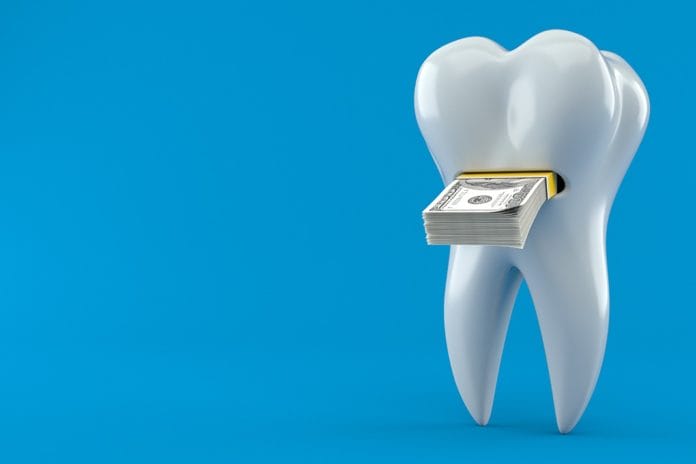When hygienists enter the field of dentistry, many present with hearts of gold. It is noticeable the minute you meet a hygienist; he/she cares about your health, family, and even more than can be imagined! Behind the compassionate hearts of hygienists, one can often find a hygienist worrying about how a patient will afford that newly diagnosed crown or the inevitable root canal treatment for the tooth that has been bothering Mr. Smith for a few months. Hygienists are often kind and compassionate to a fault, which can get in the way of properly treating patients; they diagnose pocketbooks, which can be a detriment to patient care.
Speaking for myself, I remember being one of these hygienists, and I can tell you exactly why I fell into this practice. I grew up in a family where routine dental care was sporadic. I recall my father telling me that in his family they only went to the dentist when they had a problem, usually a toothache, which resulted in “pulling the tooth” because his family could not afford to “fix” teeth. Talk about pulling on my heartstrings.
Having this embedded in my head and my heart, I often found myself feeling empathy for patients when I heard their stories about medical bills, sending kids to college, or ailing parents for whom they are caring for. I felt compassion and empathy for these patients day in and day out. However, I needed to learn that these positive assets are great to have, but there had to be a balance.
Behind the mask, loupes, and scrubs is a dentist, who is also a business owner. He/she is the person that is responsible for signing paychecks. Without treatment planning, there are no paychecks to be had, thus why balancing needs to be considered. What should employees at dental offices consider?
When treating patients, ask yourself, “How would I want to be treated at a medical office?” “Would I want my provider to tell me everything they knew about a particular condition or disease?” “Would I want to know that I have cancer, or would I want them to worry about my pocketbook and if I could afford the treatment?” All the while considering the price tag attached to the recommended treatment.
Of course, we would want to know what we need! So why do we so often worry about telling our patients that they need scaling and root planing and will require a recare interval four times a year to properly treat their periodontal disease? Behind the mask and scrubs is an empathetic healthcare provider who knows that these treatment recommendations may cause the patient more undue stress.
It is known that many hygienists are compassionate. However, compassion can likewise be shown by taking the time to educate patients properly about their disease process or a condition that a tooth is presenting. Allowing patients to make educated decisions about their oral health is a solid way of displaying professionalism, and while doing so, the dental team is advocating for the patient, as well.
Taking time is the key to be the best patient advocate you can be. So many times, I have heard patients explain that they experienced the “being herded like cattle” experience while in a dental office. Unfortunately, these experiences form a negative connotation to our industry. Yes, we are extremely busy in the midst of all of the tasks assigned to us in our prospective roles. However, we are not so busy that we cannot take time to give all the facts needed for the educated decisions we expect patients to make about their care.
How can we best serve our patient populations? The best suggestion is to communicate with your team. Is the hygienist running behind, but the doctor could move the patient to a consultation room or another treatment room to continue explaining their recommendations? Absolutely! Determining how the team can best work together will serve everyone involved in this process.
Another suggestion that has worked well for me in a previous practice with extensive treatment plans is to ask the patient to allow the time to formulate treatment plan options that can be presented to the patient in a non-threatening setting with the doctor or appropriate staff member using the data collected at their preventive care appointment.
Having this uninterrupted one on one time with the patient allows us the opportunity to connect with the patient to realize their goals. Once we have the information we need to understand what direction the patient wants to proceed, we can navigate the phases needed to serve the patient from a financial standpoint best. This creates the opportunity to serve the patient’s needs without diagnosing their pocketbook or calendars.
Patients will admire and respect an office that values their time while providing excellent customer service in patient advocacy. Additionally, staff members will look forward to representing an office that creates an optimal patient experience because they will also feel valued when they aren’t running amuck to cram so much into such little time. Being rushed, as a team member, is one of the worst feelings because we recognize that perhaps we might be skimping on care when we are not allowed adequate time, tools, or support to deliver the optimal patient experience we must strive to achieve.
Ask yourself, “What would I expect?” If you want to be respected as a patient, you can bet your bottom dollar that your patients expect the same when they choose your practice. Work as a team to develop the best regimen for your office, and you will be surprised at the changes that just may occur to your treatment acceptance rate – all while not diagnosing pocketbooks.












